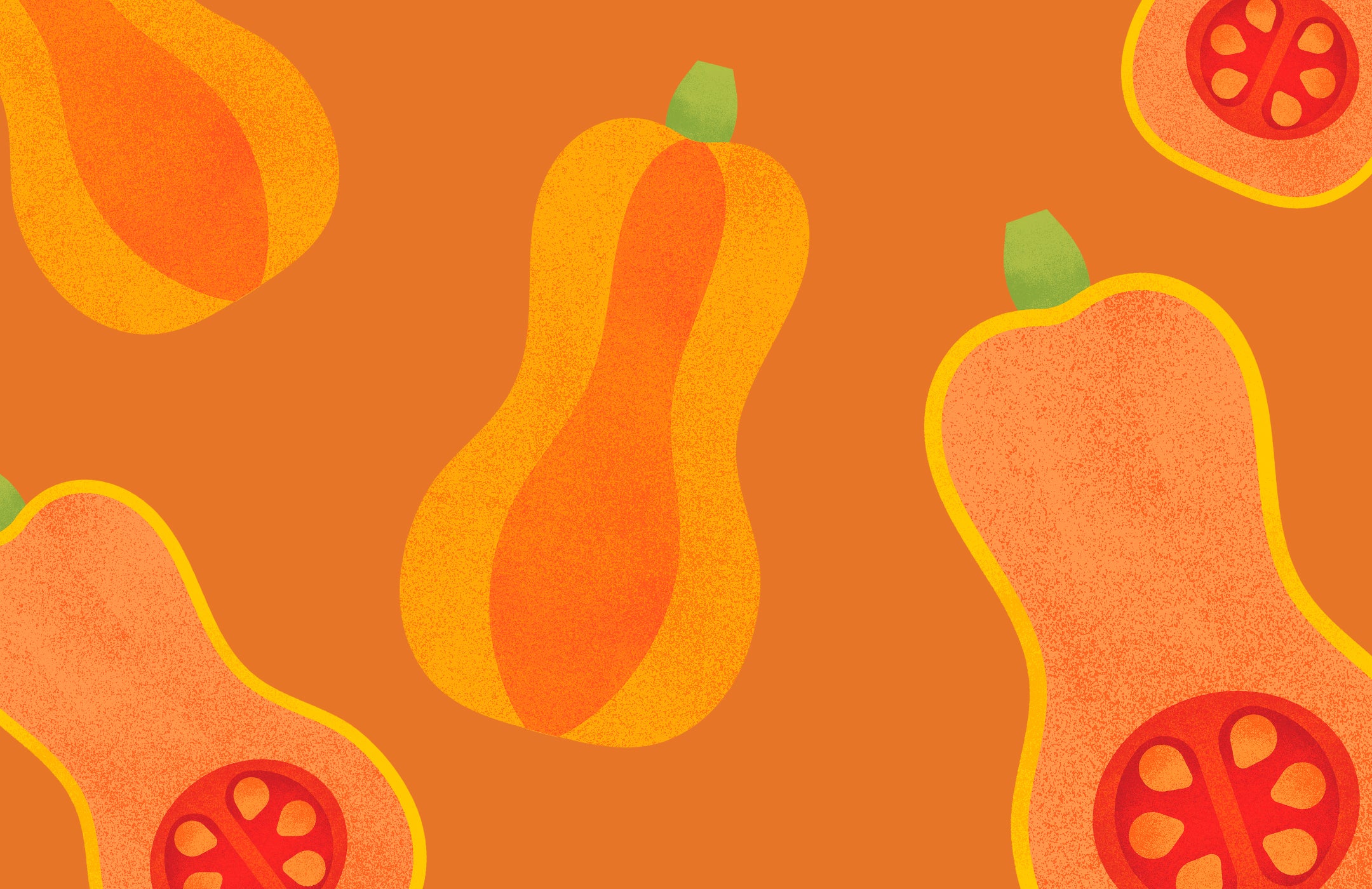Butternut squash is highly nutritious and also super versatile, making it a culinary home run for parents of young kids.
Benefits of Butternut Squash
Technically a fruit, butternut squash is nutrient dense. It contains fiber, vitamins, and minerals—all of which are incredibly important for your growing child. Components of butternut squash include:
- Vitamin A (beta-carotene): helps your heart, lungs, and other organs work properly and supports healthy vision.
- Vitamin B6: Is important for optimal brain development.
- Vitamin C: Contains antioxidants to help protect against cell damage. It helps improve iron absorption.
- Calcium: May aid in building and maintaining strong bones and teeth.
- Magnesium: May support neurological functions, improve muscle development, and regulate blood pressure.
Note: These are known benefits of the listed vitamins and minerals. Butternut squash benefits may vary based on serving size and other factors.
How to Serve Butternut Squash for Babies and Kids
Butternut squash can be served starting at 6 months. An extremely versatile fruit, it can be enjoyed solo or incorporated into both sweet and savory dishes. If you are making squash for your kiddos, there are numerous ways to prepare and serve it depending on the texture and flavor you are hoping to achieve.
Cook It:
- Roast: Peel and cut into cubes, slices, spears, or fun shapes, then roast
- Steam: Peel and cut into cubes, then steam
Serve It:
- Mash or purée for all ages
- Serve as finger foods or incorporate into other dishes for older children and adults
Save time and effort with our ready-to-serve/ready-to-cook butternut squash baby food, including:
Ready-to-Eat Pouches:
- Advanced Nutrition Ancient Grains & Greens Blend
- Butternut Squash & Cinnamon Veggie Blend
- Strawberry, Squash, Coconut & Vanilla Fruit & Veggie Blend

